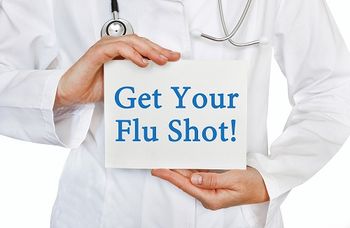
A new report on influenza vaccination rates among US health care workers finds that employer requirements help keep vaccination rates of health care workers higher than that of the general public.

A new report on influenza vaccination rates among US health care workers finds that employer requirements help keep vaccination rates of health care workers higher than that of the general public.

New surveillance report sheds light on meningococcal disease rates among HIV-infected MSM.

In a new study, investigators say cases of uncomplicated acute appendicitis may be treatable with antibiotics alone in place of appendectomy.

Findings from a pair of studies from investigators in Israel suggest that probiotic supplements may not be as beneficial as previously thought.

The conventional approach to fighting resistant E coli infections typically involves the use of no more than 2 antibiotics; however, combining as many as 5 may be the trick to fighting these infections.

A new report from researchers at the Centers for Disease Control and Prevention details the investigational use of a drug to treat Chagas disease now available commercially in the United States.
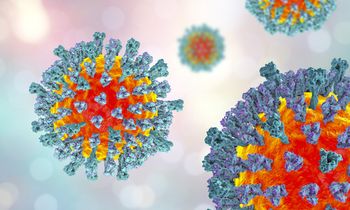
In a new study, researchers from New York City’s Department of Health and Mental Hygiene say that a 2013 measles outbreak that sprung up in the city was linked to vaccine refusal.

Researchers in Slovenia investigate why some Lyme disease patients respond more quickly to treatment than others.

Better diagnostics and treatment are needed for Mycoplasma genitalium—a lesser-known sexually-transmitted infection estimated to infect up to 3% of the population in many countries.
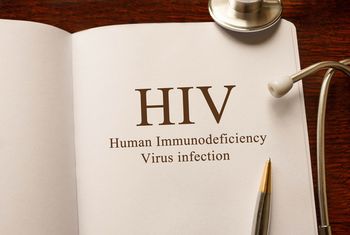
New guidelines on the prevention and treatment of HIV in adults from the IAS-USA Panel highlight advances made since the 2016 guidelines, as well as the need for new strategies.

The World Health Organization has listed Uganda on its Zika travel advisory list, but now the country’s health minister is requesting removal from the list, citing no cases or outbreaks.

Following cases of vibriosis in New Jersey, Alabama, and Florida, health officials are telling individuals with open wounds to stay out of coastal or brackish waters.
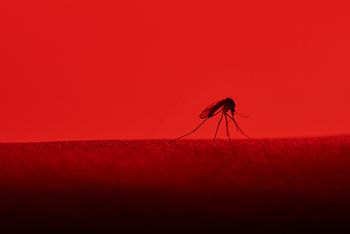
Researchers studying how pregnant women in the United States responded to the Zika virus outbreak of 2015-2016 emphasize the need to manage stress and fear during disease outbreaks.

CDC researchers say that some influenza respiratory infections may be originating in the eye, and thus, more research is needed pertaining to ocular transmission.

Doctors are prescribing antibiotics too often for viral acute respiratory infections.

State health departments around the United States are reporting their first human and mosquito cases of West Nile virus for the 2018 season, prompting reminders to practice mosquito bite prevention.

An Ebola virus outbreak that began in the DRC in May has been the first in which a new vaccine and several therapeutic drugs have been available, and health officials around the world are praising the response.

Researchers are calling for an end to nonmedical exemptions for vaccines in the 18 states that still allow them, saying several metropolitan areas are now vulnerable to measles outbreaks.
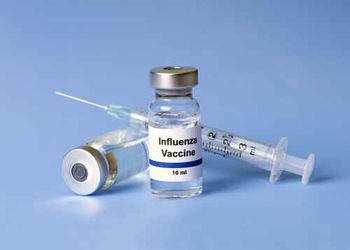
The overall rate of health care personnel receiving flu shots has gone up in recent years, but a new study finds that much of the increase is due to policies held at non-VA hospitals.

A new study has found that travelers’ diarrhea from Escherichia coli infection may be more likely to occur in individuals with blood type A.

Despite public health recommendations, a new study has found that too many adolescents and young adults in the United States are failing to complete the full vaccination course for HPV.

In time for the Memorial Day weekend, the US Centers for Disease Control and Prevention released a report indicating that 1 in 3 swimming-related disease outbreaks in the United States occur in hotels.

Flesh-eating infections caused by group A strep bacteria can be deadly but researchers may have found the key mechanism the pathogen uses to elude our immune systems and some potential ways to stop it.

New research suggests that too many patients with acute infections are dying in one South African city affected by high rates of HIV and TB.
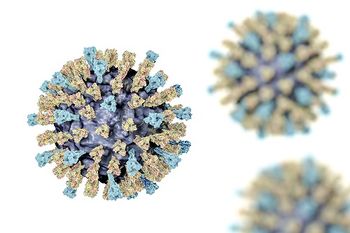
Following recent reports that England has seen more measles cases so far in 2018 than in all of 2017, health officials are combating outbreaks of the virus with vaccination clinics.

Researchers have found that a vaccine for Junin virus, a South American hemorrhagic fever virus, protects against another virus in the same family, opening up the possibility for universal vaccines for virus families.

Researchers from the Centers for Disease Control and Prevention call for better surveillance of enteroviruses and parechoviruses following outbreaks of respiratory illness and hand, foot, and mouth disease.

Brain damage caused by HIV can begin soon after infection, according to new research, but initiating antiretroviral therapy drugs can halt the damage.
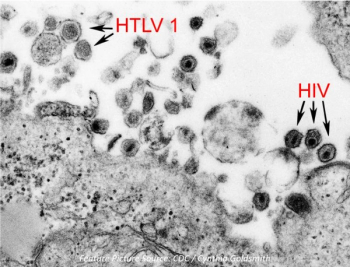
Rates of a lesser known virus related to HIV called HTLV-1 have surged in some of Australia’s Aboriginal communities, and now the country’s health officials are facing a global outcry to act.

A phase 2 trial of an experimental universal flu vaccine is moving forward with sponsorship from The National Institute of Allergy and Infectious Diseases.